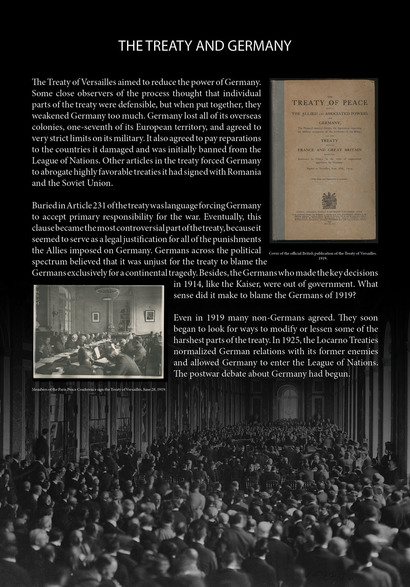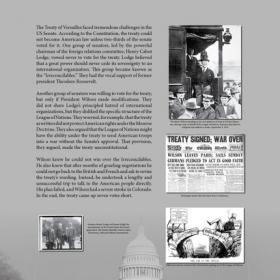The Treaty and Germany
The Treaty of Versailles aimed to reduce the power of Germany. Some close observers of the process thought that individual parts of the treaty were defensible, but when put together, they weakened Germany too much. Germany lost all of its overseas colonies, one-seventh of its European territory, and agreed to very strict limits on its military. It also agreed to pay reparations to the countries it damaged and was initially banned from the League of Nations. Other articles in the treaty forced Germany to abrogate highly favorable treaties it had signed with Romania and the Soviet Union.
Buried in Article 231 of the treaty was language forcing Germany to accept primary responsibility for the war. Eventually, this clause became the most controversial part of the treaty, because it seemed to serve as a legal justification for all of the punishments the Allies imposed on Germany. Germans across the political spectrum believed that it was unjust for the treaty to blame the Germans exclusively for a continental tragedy. Besides, the Germans who made the key decisions in 1914, like the Kaiser, were out of government. What sense did it make to blame the Germans of 1919?
Even in 1919 many non-Germans agreed. They soon began to look for ways to modify or lessen some of the harshest parts of the treaty. In 1925, the Locarno Treaties normalized German relations with its former enemies and allowed Germany to enter the League of Nations. The postwar debate about Germany had begun.


